Cargando...
Recursos educativos
-
Nivel educativo
-
Competencias
-
Tipología
-
Idioma
-
Tipo de medio
-
Tipo de actividad
-
Destinatarios
-
Tipo de audiencia
-
Creador
Lo más buscado
- Los planetas
- canciones inglés infantil
- Divisiones para niños
- Actividades cientificas para niños de tercero
- Alimentación saludable en Jardín
- laboratorio ciencias
- Aprender a montar en bici
- Atmósfera primitiva
- Ciclos de la naturaleza
- Juegos para pintar para niños
- Experimentos para preescolar
- Actividades con números naturales para secundaria
- Rocas magmáticas
- Aprender a educar
- Comparación de razones
-
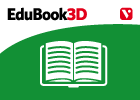
End-of-unit evaluation - Living things
EduBook Organización
- 1 lo usan
- 4409 visitas
There are a great variety of living things on the Earth. Some are microscopic and very simple, like bacteria, and others are very big and complex, like elephants. Even though they are different, all…
-
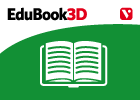
Introduction - Living things
EduBook Organización
- 4610 visitas
There are a great variety of living things on the Earth. Some are microscopic and very simple, like bacteria, and others are very big and complex, like elephants. Even though they are different, all…
-

-
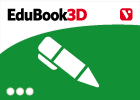
Answer. The nervous system
EduBook Organización
- 4573 visitas
Answer these questions in your notebook: Which organs make up the central nervous system? What is the difference between the spinal cord and the spinal column? Which organs make up the brain? There are…
-
Summaries - Matter and Materials
EduBook Organización
- 4461 visitas
1. The states of matter and their properties All things in nature are made of matter. Matter is made of different substances with different properties. Matter exists in three different forms or physical…
-
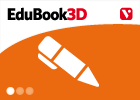
Check. Test yourself
EduBook Organización
- 4481 visitas
Remember what you have studied in this unit and answer the questions: Why is it easy to compress a gas, but not a solid? What is the difference between chemical elements and chemical compounds? Are…
-
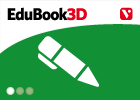
Answer. Pre-Roman tribes: the Celts
EduBook Organización
- 4397 visitas
Remember what you have studied in this section and answer the questions: Who were the Celts? Where in the Iberian Peninsula did the Celts live? Where did they come from? What were Celtic villages…
-
End-of-unit activities - The Animal Kingdom (II). Vertebrates
EduBook Organización
- 4274 visitas
There are around 50000 species of vertebrates, classified into five main groups: fish, amphibians, reptiles, birds and mammals. Fish are the most primitive group and they have the highest number of…
-
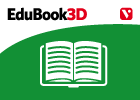
Introduction - Energy
EduBook Organización
- 4186 visitas
We need energy to move. Humans get energy from food. Machines get energy from petrol or electricity. The Sun is a natural source of energy. We call the Sun a renewable energy source because it is…
-

Te estamos redirigiendo a la ficha del libro...











